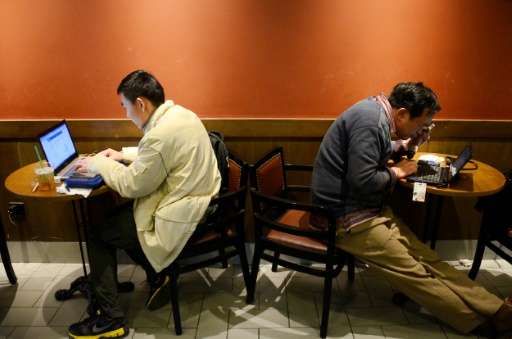China passed a controversial cybersecurity bill tightening restrictions to online freedom that requires companies to verify a user’s identity and makes it illegal to go online anonymously. This could intensify wide-ranging Internet censorship.

The Communist Party in China oversees an extensive censorship system called the Great Firewall that aggressively blocks sites or detects Internet content and commentary on topics considered sensitive, such as Beijing’s human rights record and criticism of the government.
Approved by the National People’s Congress Standing Committee, the law prohibits Internet users from publishing information, such as anything that damages “national honor,” “disturbs economic or social order,” or is aimed at “overthrowing the socialist system.” The law requires companies to verify a user’s identity, thus making it impossible for someone to go online anonymously. It also includes requirements for protecting the country’s networks and private user information.
The legislation drew in criticism, especially from rights groups and businesses. Foreign companies questioned the language that would require them to cooperate with Chinese authorities to “protect national security.”
However, Chinese authorities have long had the right to control and censor online content. The country stepped up its controls in 2013 when it launched a wide-ranging Internet crackdown that targeted activists. Hundreds of Chinese journalists and bloggers were arrested as part of the campaign to display greater control over social media.
At the time, the regulations announced stated that Chinese users who write defamatory messages that are re-posted 500 times or more would face three years in prison. Additionally, web users can be jailed if offending posts are viewed more than 5,000 times. Comments posted on social media have been used in the prosecution of many activists, including human rights lawyer Pu Zhiqiang.
“If online speech and privacy are a bellwether of Beijing's attitude toward peaceful criticism, everyone -– including netizens in China and major international corporations – is now at risk. This law's passage means there are no protections for users against serious charges,” said Sophie Richardson, China Director of Human Rights Watch.
Source: Phys.org
Advertisement
Learn more about Electronic Products Magazine





